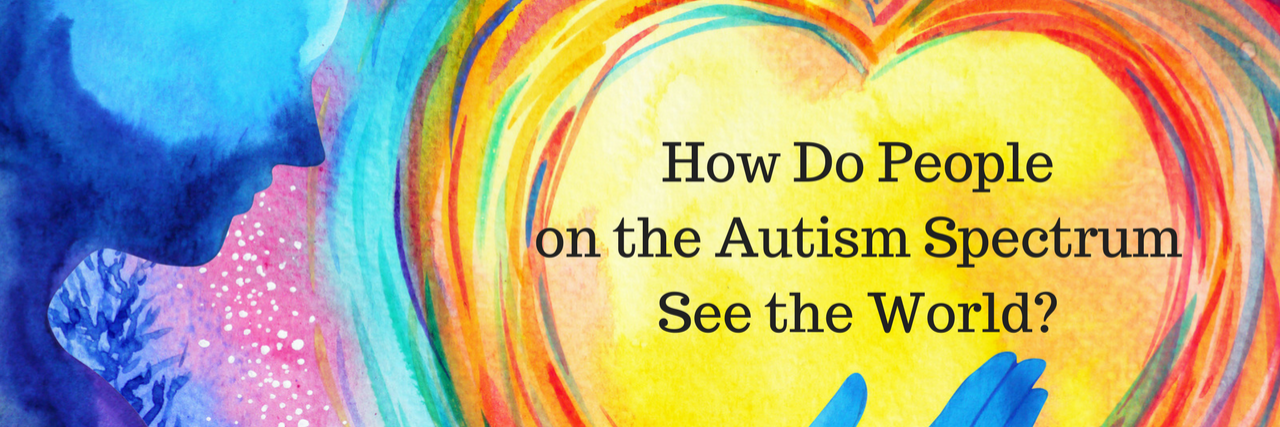During Autism Acceptance Month, we believe it is especially important to listen to the voices of autistic individuals.
There are many stories told from the perspective of parents, friends and medical professionals — and those have a time and place — but too often, autistic individuals’ stories are disregarded or drowned out. And when this happens, we lose an amazing and unique perspective.
So we reached out to autistic adults and asked, “How do you see the world differently from neurotypical individuals? What do you want people to know about the strengths of your unique perspective?”
These were their responses:
1. “I see the world the way Zacchaeus in the Bible did when Jesus made his triumphant return to Jerusalem. While everyone else was crowding around the gates and along the path he was taking, pushing and shoving and so on, Zacchaeus decided to climb a tree and watch from there, out of harms way. It gave him a unique vantage point. Without intending to, he drew attention to himself and got mocked by the crowds for it, but Jesus befriended him. Basically, Jesus respected his unique point of view. Just because it’s different, doesn’t mean it’s wrong.” — Susan E.
2. “I have this capacity for joy that others don’t seem to have, at least not in quite the same way. I don’t always express that joy on the outside very well, and it can be quieter than the way it would look in other people, but it’s there inside of me and I think people see it if they look hard enough. No matter what I am going through, I am able to separate it from the joys in life and I can still find deep, wondrous joy even in the darkest of times. The sunlight shining through bare branches and making patterns on freshly fallen snow is beautiful to me, even in April. The feeling of a purring cat on my lap, the first sip of a perfectly brewed cup of coffee, a happy little chickadee at the bird feeder, all these little tiny joys throughout my day, being experienced and cherished as fully as possible, even through grief and pain. Don’t get me wrong, it can be harder to reach sometimes, but I still try and I almost always succeed. I don’t know if it’s because I experience things more intensely or if it’s that detail oriented part of my brain that picks up on those small details, or maybe it’s both. I just know that people are often surprised when they hear about how much I am enduring with my health and loss and other life troubles and they often comment on my positive attitude and my strength. It seems to be something unique to me that a lot of other people have more trouble achieving. I can’t quite put it into words, I just know it is because of my autism, and because of that one little — but very big thing — I wouldn’t trade my autism for anything.” — Jennifer K.
3. “Its loud, bright, flashy and it hurts, but I can’t get away from it. Sometimes it’s a good thing and sometimes it’s not. I’ve learned where my personal limits are, but I can’t always tell people I’m at that limit. that my life. I wish sometimes I had a “Waldon cabin” but I don’t. And please, for the love of god, stop calling my genetic makeup a disease! My suffering isn’t from a virus. [Autism] is in my literal fiber, it’s genetic.” — Yvonne T.
4. “I see the world as a confusing and huge place. Because of it, I take everything in all at once and as a result, I don’t always like being at social gatherings. I would like people to know that people with autism are just like everyone else and despite the level or whatever, we’re human. We’re not a disease, not a experiment for science, and lastly, not the people media portray us as, like “Rainman” and “Atypical.” We grow and progress just like everyone else, we don’t stay the same like the media portrays. I want to see the real person, not what media portrays. I’m done with misconceptions, end of story.” — Brookelyn R.
5. “For many years the only way I could make sense of my different experience was having the belief that life was a play, and everyone but me had the script… I was an experiment… that offered some comfort as I saw everyone else managing things so easily that I struggled with.” — Katy K.
6. “I see the world as if I were an alien from another world. I observe the people and my surroundings learning from them, at the same time unaware of what’s going on around me. I’m there, but I feel isolated as if for some reason I don’t belong and have trouble connecting to this strange planet and don’t understand a lot of what is said and done. I’m curious to become involved, but at the same time, keep my distance so they don’t see the things that make me different from them.”– Jay P.
Are you an adult on the autism spectrum? How do you see the world differently from neurotypical individuals? What do you want people to know about the strengths of your unique perspective? Let us know in the comments.
Getty image by Benjavisa

